Problem Solving With the Pros: Rustic Simplicity in a Country Garden
http://decor-ideas.org 09/02/2015 03:13 Decor Ideas
The owner of this Connecticut property built a house out of 150-year-old barn wood for a year-round weekend retreat. She called on landscape architect Janice Parker to sculpt a 1½-acre garden out of the 20-acre tract, one that would make a meaningful connection to the surrounding countryside while satisfying her minimalist aesthetic. The result is profound.
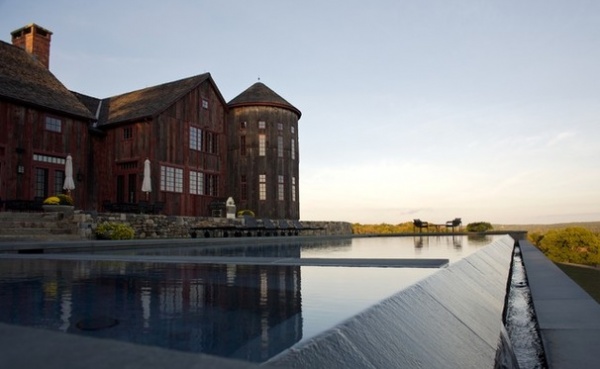
Location: Roxbury, Connecticut
Size: 1½ acres
Designer: Janice Parker
Primary challenge: To incorporate amenities and entertaining space for large family gatherings while creating a landscape that embraced the spirit of the land in a way that appeared effortless.
Homeowner’s requests: To install a swimming pool, a terrace and an outdoor shower; to use indigenous materials; and to restore the land to its pre-1950s use as an orchard, giving all a minimalist vibe with, in Parker’s words, no hint of being stagy.
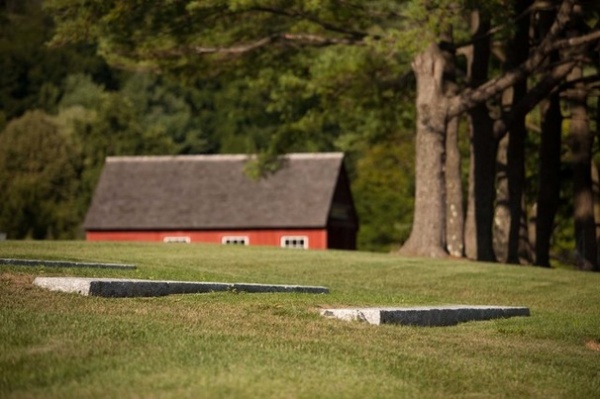
The Designer’s Process
Build for the future. Parker approached this project, as she does all of her projects, with certain tenets. The first is to build for the future.
To build a garden that stands the test of time, Parker approaches the site intellectually to understand its history. The future cannot be assessed, she says, without understanding current and historic cultural views and values. She plants site-appropriate trees and chooses details wisely, using nothing that’s too trendy.

Make every element matter. This tenet becomes most apparent, Parker says, where two or more materials meet. Attention to detail, quality materials and excellent craftsmanship are most visible in those places. For example, she looked at more than 60 urns before choosing a style that felt appropriate for the site. The result appears effortless.
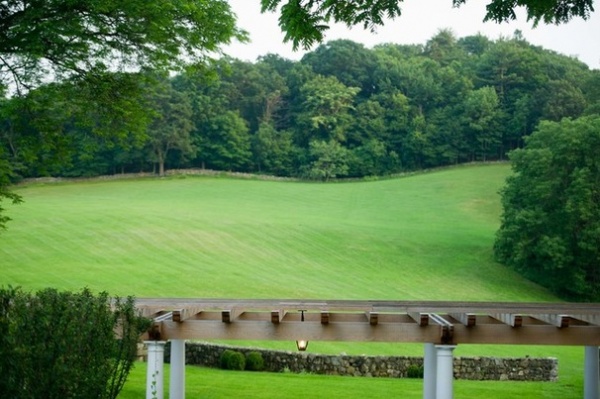
Focus on simplicity. “Simple is hard, and less is more,” Parker says. She creates plans full of details, then edits until only those things that are simple, profound and relevant remain. She subtly repeats elements throughout her landscapes to create continuity and flow. Axial views are most important. She makes certain that there are no distractions. Simplicity done right, she says, never looks empty.
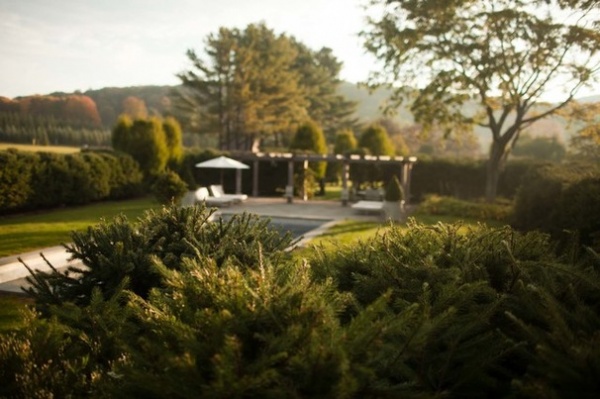
Concentrate on grace and timelessness. This is most noticeable in winter when the bones of the landscape are most apparent. With this tenet in mind, Parker looks to farmers for inspiration. She says that farmers are never wrong, because they understand the patterns of plant growth and layout while approaching the land with respect. Farmers generally work with the existing contours of the land; Parkers endeavors to do the same whenever possible.
Successfully concentrating on grace and timelessness creates a basic connection between humans and the land that makes us feel comfortable and focused.
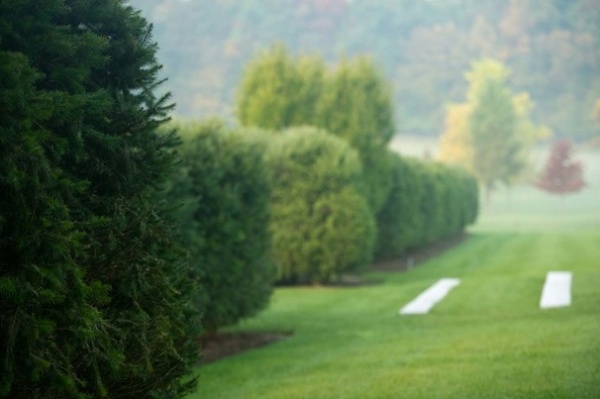
Embrace innate harmony. In Parker’s mind, to create innate harmony means to not overdecorate. The design should be simple, focusing on the quality of the land instead of being something “you’re sticking on top of it,” she says. She believes that every plot of land has inherent strengths and weaknesses. She strives to balance strengths and weaknesses to create magic.
Parker believes that those who design landscapes are magicians, and that people “come to us to create magic.” To create that magic, she believes, designers need to “push it as far as it will go in all directions.”
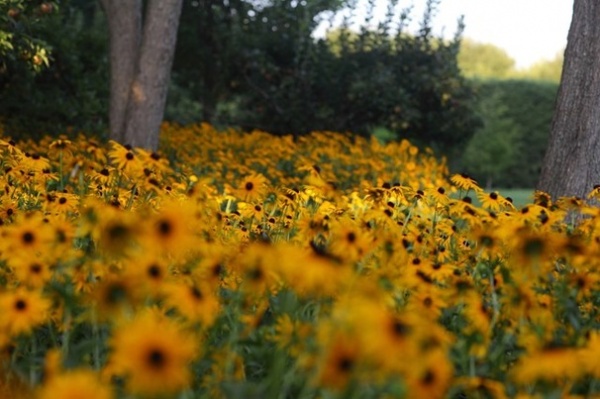
Saturate with color. Parker says that many people want a low-maintenance garden of white and green, but that we have so many colors to work with for a reason. “Dig deeper. Get courage. Try color,” she advises. “Color is energy, and it’s a big element of the magic.”
This is not to say that every area of a landscape needs to be saturated with color, but large swaths of flowering perennials or urns filled with mums in autumn can complete a space, as seen above.
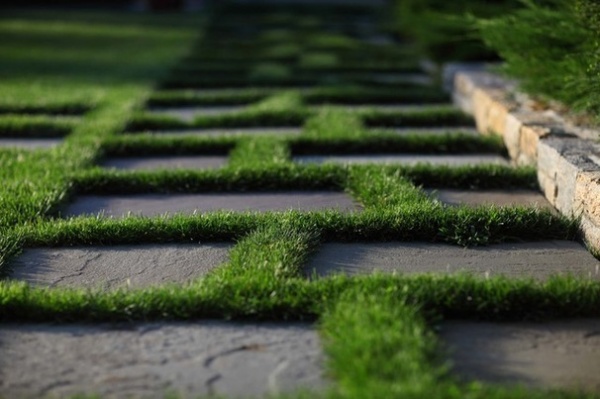
Introduce visual rhythm. Designing with shapes, introducing curves, properly pruning trees and creating volumes of space are all ways that Parker creates visual rhythm. She frequently and thoughtfully places fastigiate or multi-limbed trees throughout her landscapes to carry the eye through the space. Introducing rhythm helps the mind properly process the landscape.
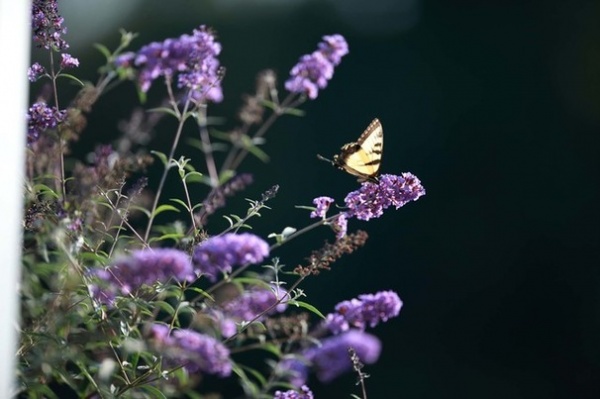
Work with nature. Working with nature is sensible and saves time and energy, Parker says. This means to plant the right plant in the right place and to design thoughtfully to limit heavy intervention or extreme recontouring. Nature creates stability, and we should honor that. No single garden can have it all; nature teaches us balance with regard to what we can and cannot have. “Look at a tree,” she says. “It will tell you everything if you are open to it.”
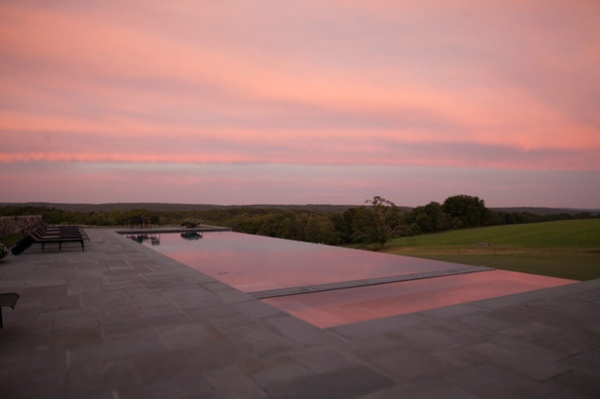
Solutions for a Minimalist Rustic Retreat
Infinity-edge swimming pool. Parker satisfied the client’s request for a pool and an entertaining terrace by installing a 70-foot infinity-edge pool and spa. To maximize views and create clean lines, the infinity-edge wall acts as a pool fence (shown in the first photo). This solution came as a result of her editing process. The surrounding bluestone terrace continues the plane and provides adequate room for lounging. This space, she says, is all about the views.
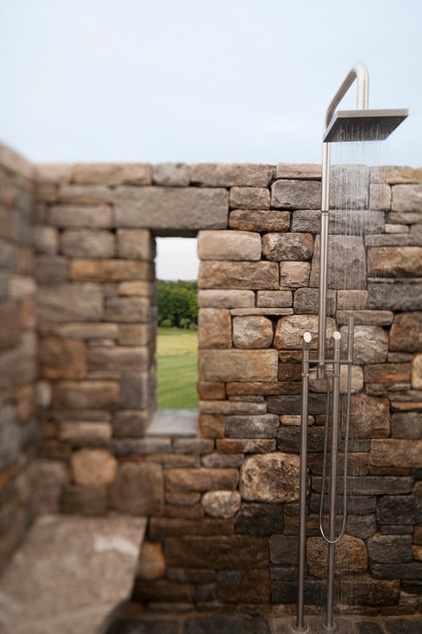
Outdoor shower. An outdoor shower sits below the pool and out of sight. The modern hardware creates a meaningful juxtaposition with the rustic stonework.
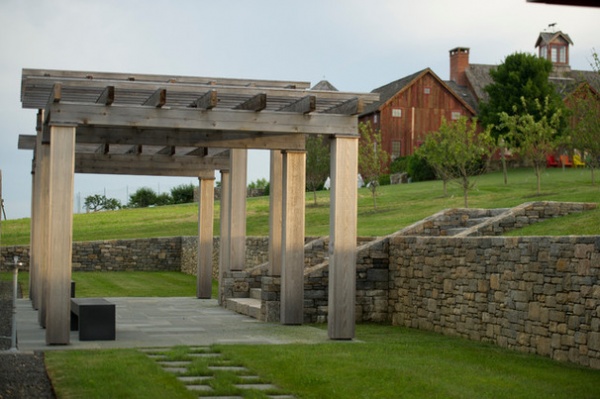
A massive pergola was constructed on a lower level of the landscape to provide additional space for large family gatherings.
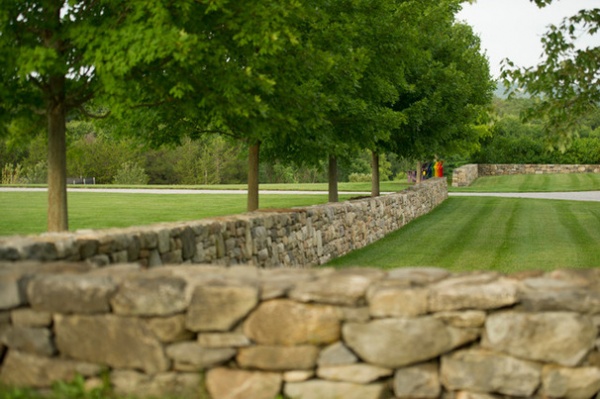
Walls of native stone. To create character and a strong connection to the land, Parker used local stone for garden walls. She worked with, in her words, “a brilliant stone mason who cut stone all winter long with a guillotine in his yard.” The detailed walls read as strong sculptural elements that pull the eye through the space in a relaxed way.
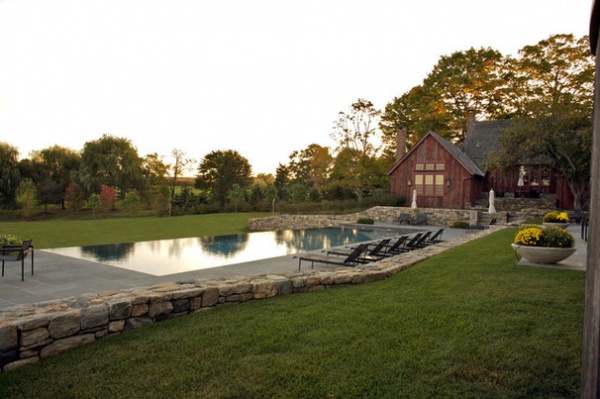
Restricted planting plan. Parker’s planting plan can be described as minimalist and intentional. Her plant palette was restricted due to deer, inclement weather and her client’s refined aesthetic. The goal in certain areas of the landscape was to reintroduce heirloom apple and crabapple trees to speak to the fact that the land was originally planted as an orchard.
In other parts of the landscape, the plan called for lilacs, birches, weeping willows, butterfly bushes and a few boxwoods, because they are deer-resistant. Larger areas of turf hug the contours of the land and reinforce the minimalist aesthetic that created this landscape.
More
See more guides to landscape design
Discover deer-resistant plants for the garden
Related Articles Recommended












